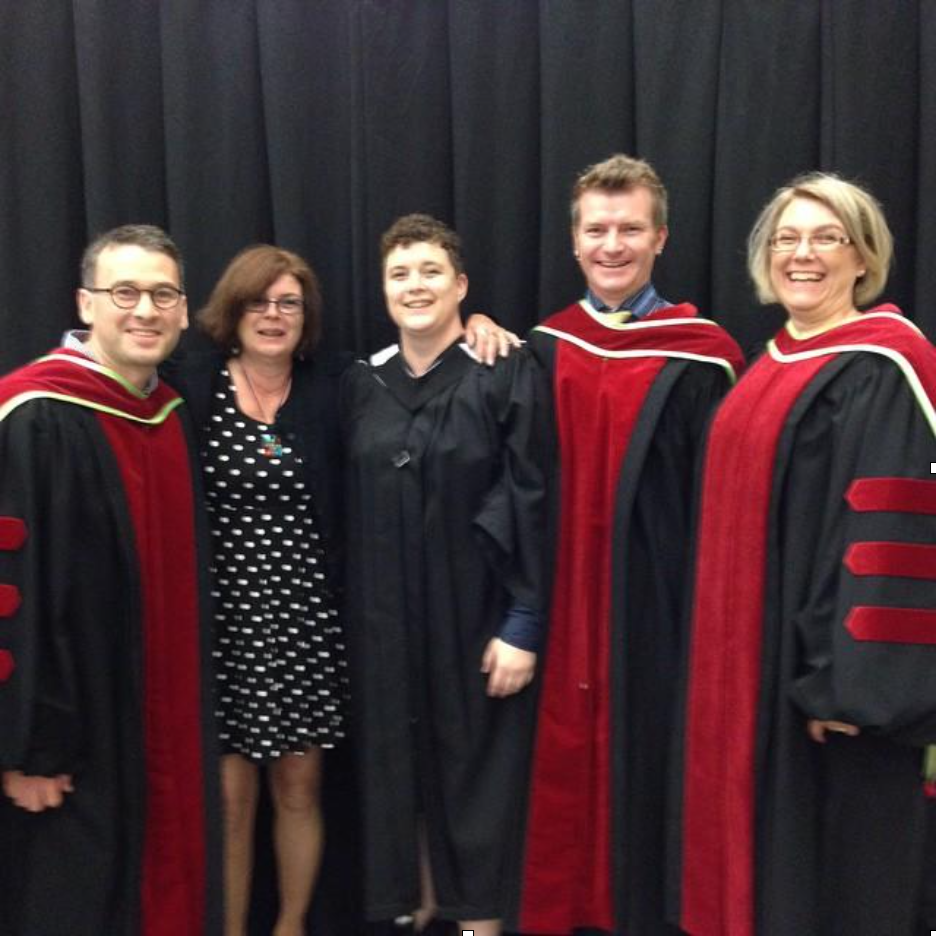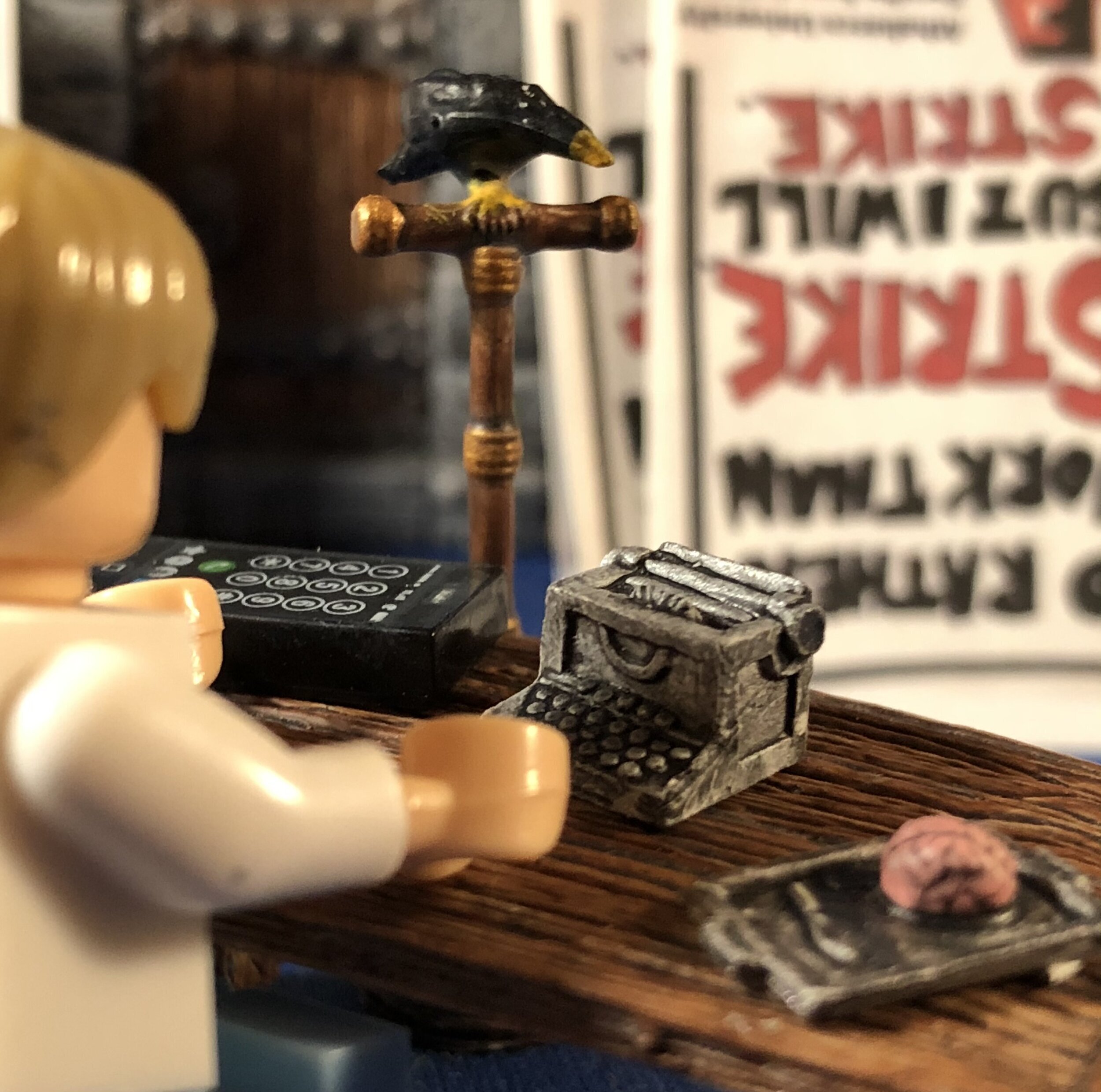AUFA is aligned with the Confederation of Alberta Faculty Associations (CAFA) and the Canadian Association of University Teachers (CAUT) in calling for all presidential searches at post-secondary institutions to be as open and transparent as possible. Instead of being surprised by the announcement of a new leader selected through a completely closed and secretive process, faculty, staff, students, and the broader community should have meaningful exposure to potential candidates and an opportunity to provide input to the selection process.
While we remain critical of the process that got us to this point, AUFA calls on Dr. Clark to provide very different leadership than what we’ve experienced over the last several years – one that is more responsive and prioritizes stability and employee well-being over unproductive disruption.
“Disharmony”
The Board Chair referenced “staff strife and disharmony” as a key factor motivating this decision. We might characterize the situation slightly differently, but it does point to the worsening of both morale and working conditions over the past several years. AUFA members have weathered blatant union-busting, aggressive bargaining, continuous and cumulative breaches of our rights under the collective agreement, and a generally callous disregard for our well-being. AUFA staff and volunteers can scarcely keep up with the onslaught of contract violations, disciplines, and other issues facing our colleagues.
While AUFA as a union is occasionally vilified by university leaders or painted as the source of problems, the reality is that we simply would not have to fight so much if university leadership, particularly decision makers within Human Resources, demonstrated even the slightest bit more care and regard for employee well-being. Well-intentioned, good faith efforts to raise concerns about employee wellness are routinely ignored or rejected.
AUFA is committed to doing its part to meet in good faith and attempt to resolve current, long-standing, and emergent issues directly with the employer and to reduce the number of cases that are escalated to arbitration at the labour board. We call on the university administration to come to the table with the same good faith.
Words and Actions
One of the most common complaints we have heard from AUFA members over several years of regular surveys and other engagement efforts is the disconnect between the rhetoric of university leadership and their concrete actions. This has been experienced most acutely in the university’s so-called commitment to Equity, Diversity, and Inclusion (EDI).
Despite proclamations about intentions to champion EDI, including signing the Scarborough Charter, previous initiatives left much to be desired. We still are waiting for a university-wide plan and policy, supported by appropriate personnel and overseen by a body independent from HR, for fostering an equitable, diverse, and inclusive work environment and articulating institutional accountabilities. While we wait, faculty, staff, and students who are experiencing systematic forms of gender, sex, racial, anti-Indigenous, and anti-Black harassment are left with little recourse.
AU’s actions and rhetoric on EDI need to come into closer alignment – urgently, not pushed to some distant future. AUFA calls on the university administration to prioritize the establishment of an independent Equity Office that has both an appropriate mandate and sufficient resources to be effective.
Mismanagement
Over at least the past year AUFA members and our colleagues have been grappling with increasingly unsustainable workloads and worsening working conditions, making it more and more difficult to maintain the services and quality of courses that students deserve and expect.
There are many contributing factors, but topping the list are the many ways in which IT functions have been extremely poorly managed by top leaders while also being increasingly severed from academic oversight and governance. From the poorly handled reorganization of the IT department to the incessant pushing forward with ill-fitting and costly technological changes, staff within IT have been working within an increasingly corrosive working environment, and negative impacts are being felt across nearly all university departments.
We want a chance to be excited about change, to exercise our professional judgment, and to actually use the skills for which we were hired in the service of the university’s open mission. We want to break out of unproductive siloes and to understand how our individual work contributes to achievable, shared goals. AUFA calls on the university administration to pause the implementation of the Integrated Learning Environment and prioritize staff agency and input in an honest and transparent reassessment of technological change initiatives.
Time to Start Listening
Of course, there are forces at play that are larger than AU alone. The post-secondary sector across the province and beyond is strained by many of the same issues, and the current provincial government has contributed to many crises and challenges across institutions. But AU is not simply a victim of circumstances. There are many things that are fully within the university’s power to change.
The top-down, managerial, corporate-style leadership adopted over the past several years is not working, nor is the increased reliance on external vendors. Our strength as a university comes from within – the dedication and commitment of those who do the real work in the service of students is the reason AU has survived despite abysmal failures of leadership.
As a faculty association, we have frequently engaged our membership in order to gather meaningful feedback and input on both internal union decisions and broader university questions. Our understanding of the current situation is grounded in countless hours of respectful listening, reading, writing, and discussions with colleagues. Yet we have been consistently ignored, sidelined, or belittled by successive university leaders. We expect that our colleagues in our sibling unions have had a similar experience.
We believe that, for the university to achieve stability and grow in its mandate as an open public institution, senior administrators and the board of governors need to hear, respect, and meaningfully respond to the concerns and suggestions raised by faculty, staff, and students. Better yet, AU needs to move beyond listening and empower faculty and staff to actively and meaningfully participate in decision making processes, including those at the highest level.
AUFA calls on the Board of Governors and the university administration to refocus on core, mission-driven work; to prioritize stability and faculty and staff well-being; to empower employees to exercise meaningful agency; and to strengthen collegial governance by increasing transparency and participation.
Rhiannon Rutherford, AUFA President
Your Turn
The AUFA executive will be identifying more specific priorities to present to the new university leadership. Use this space to share your priorities or any other thoughts about the recent announcement and how AUFA should respond.





